Medical College of Wisconsin Pediatric Emergency Medicine (PEM) Fellowship
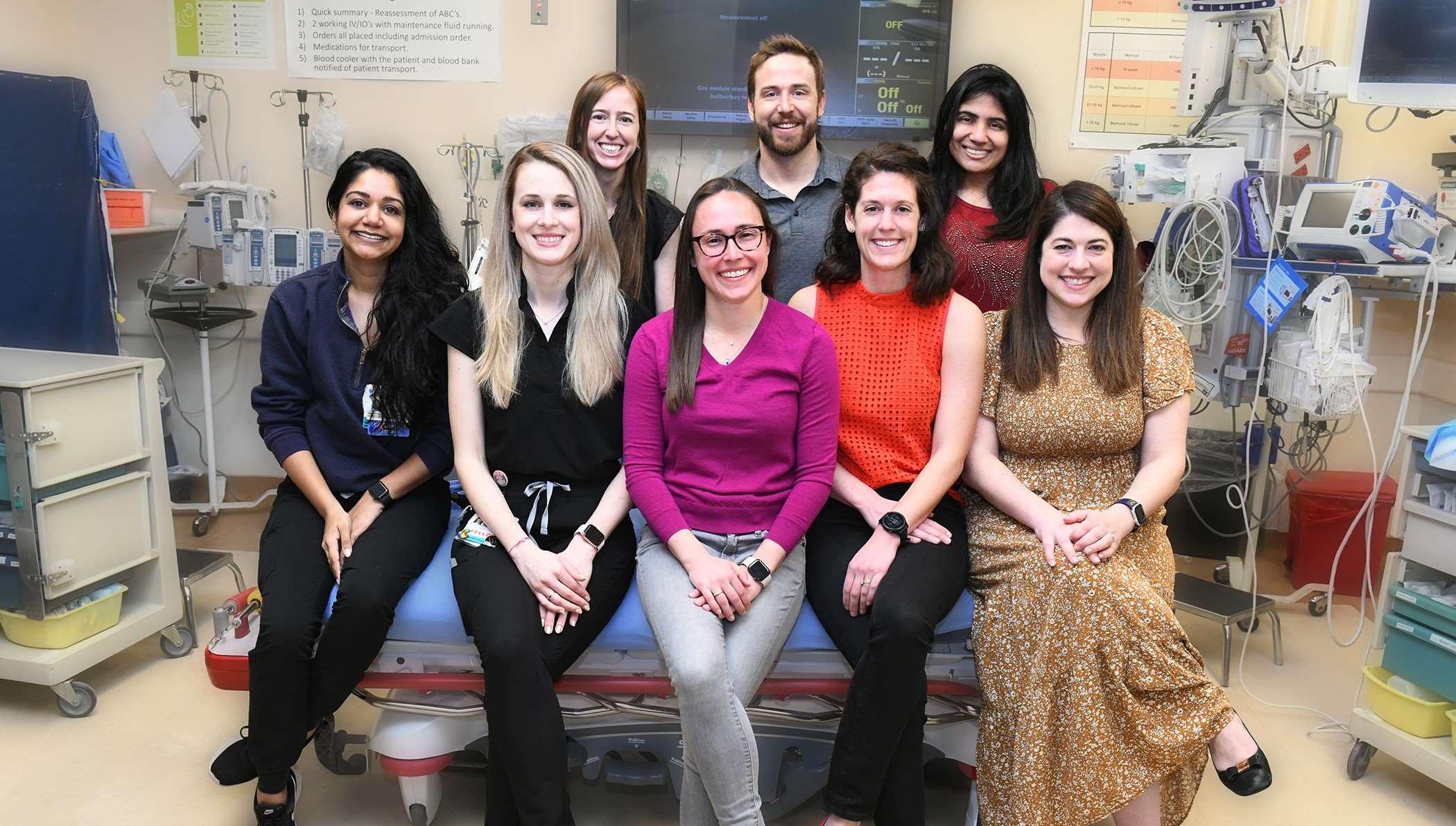
A Message from Our Director
 Thank you for your interest in our program! As Fellowship Director, I have the honor and privilege of helping to train the next generation of leaders in pediatric emergency medicine. At the Medical College of Wisconsin/Children’s Wisconsin, we are lucky to attract top-notch fellows who constantly motivate us to provide the best training in clinical medicine and scholarship. Our tertiary care pediatric emergency department and trauma center (EDTC) has over 75,000 visits annually, offering a great place to hone your clinical skills. We are also fortunate to have campus and national leaders in all disciplines of scholarship within our section who take an active interest in sharing their knowledge and experience with our fellows.
Thank you for your interest in our program! As Fellowship Director, I have the honor and privilege of helping to train the next generation of leaders in pediatric emergency medicine. At the Medical College of Wisconsin/Children’s Wisconsin, we are lucky to attract top-notch fellows who constantly motivate us to provide the best training in clinical medicine and scholarship. Our tertiary care pediatric emergency department and trauma center (EDTC) has over 75,000 visits annually, offering a great place to hone your clinical skills. We are also fortunate to have campus and national leaders in all disciplines of scholarship within our section who take an active interest in sharing their knowledge and experience with our fellows.
Our Pediatric Emergency Medicine Fellowship is dedicated to providing our trainees an advancement of autonomy that sets them up to be successful wherever they practice after training. We look forward to hearing from you and having the opportunity to show you what an amazing place Milwaukee is to train!
Abigail Schuh, MD, MMHPE
Associate Professor of Pediatrics
Director of Education, Section of Pediatric Emergency Medicine
Program Director, Pediatric Emergency Medicine Fellowship
As a PEM fellow you will...
- Receive clinical training in the Emergency Department and Trauma Center (EDTC) of Children’s Wisconsin, a Level 1 trauma center on the campus of the Milwaukee Regional Medical Center that opened a brand-new facility in October 2023
- Receive training in a regional Medical Center that cares for over 75,000 children each year
- Receive training in research design, statistics, medical literature review, quality improvement and patient safety, and other forms of scholarship
- Complete a scholarly product of publishable quality
- Participate in administrative duties for further education and career development
- Become familiar with concepts of risk management and essentials of emergency department documentation
- Enjoy weekly protected time for fellow education. Sessions include: comprehensive point of care ultrasound curriculum, high-fidelity simulations, video trauma review, case conferences, journal club, board review, and other various learning opportunities.
Children's Wisconsin ED Tour
About Our Institutions
Medical College of Wisconsin (MCW)
The Medical College of Wisconsin brings together the most inquisitive minds in science, medicine, education and community engagement to solve the toughest challenges in health and society today. Academic medicine is at the core, where scientists, physicians and students work hand-in-hand with the community to ask the questions no one else is and fuel the continuous cycle of knowledge that’s shaping the future of medicine.
Children’s Wisconsin
Children’s Wisconsin is the region’s only independent health care system dedicated solely to the health and well-being of children. We offer a wide range of care and support for children of all ages. Our services include medical care, dental care, child and family counseling, foster care, adoption, social services, child advocacy and injury prevention.
About Our Fellowship
Our Fellowship in Photos
Fellowship training at MCW has been a fantastic learning opportunity. Training at a busy academic hospital/level-1 trauma center with friendly, intelligent, and supportive faculty who provided graded autonomy and strong research mentorship certainly facilitated my success in the program and ultimately influenced my decision to stay on board as a faculty member!"
Keli Coleman, MD
June 2020
Third Year Fellows
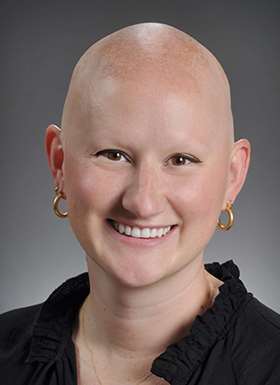
Lindsay Boles, MD
Pediatric Emergency Medicine Fellow
Residency: McGaw Medical Center of Northwestern University, Chicago, IL; Medical School: Ohio State University College of Medicine, Columbus, OH | Research interest: Throughput, Process Improvement, Medical Education

Hanna Heintz, MD
Pediatric Emergency Medicine Fellow
Residency: MCWAH-Children's Wisconsin, Milwaukee, WI; Medical School: Medical College of Wisconsin, Milwaukee, WI | Research interest: Interface between prehospital and ED medicine and improving pediatric emergency medicine education in surrounding EMS communities

Emily Hogikyan, MD
Pediatric Emergency Medicine Fellow
Residency: McGaw Medical Center of Northwestern University, Chicago, IL; Medical School: University of Michigan Medical School, Ann Arbor, MI | Research interest: Medical Education, Patient Education
Second Year Fellows

Callie Krentz, MD
Pediatric Emergency Medicine Fellow
Residency: Cincinnati Children's Hospital, Cincinnati, OH; Medical School: Medical College of Wisconsin, Milwaukee, WI | Research interest: QI - Patient and Family Experience

Abigail Mahler, MD
Pediatric Emergency Medicine Fellow
Residency: Washington University St. Louis Children's Hospital, St. Louis, MO; Medical School: Medical College of Wisconsin, Milwaukee, WI | Research interest: Injury prevention

Emma Strode, DO
Pediatric Emergency Medicine Fellow
Residency: Case Western Reserve/Rainbow Babies, Cleveland, OH; Medical School: A.T. Still University of Health Sciences Kirksville, Kirksville, MO | Research interest: Advocacy - Firearm storage, Food insecurity
First Year Fellows

Elizabeth Curtis, MD
Pediatric Emergency Medicine Fellow
Residency: Cincinnati Children's Hospital Medical Center; Medical School: Indiana University School of Medicine

Abigail Georgescu, MD
Pediatric Emergency Medicine Fellow
Residency: Medical College of Wisconsin; Medical School: Medical College of Wisconsin
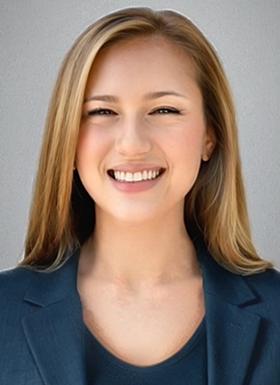
Megan Lucas, MD
Pediatric Emergency Medicine Fellow
Residency: University of Minnesota; Medical School: University of Minnesota Medical School
Graduated PEM Fellows
Our Team
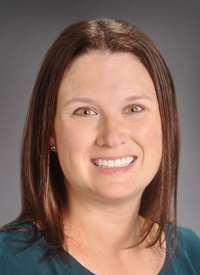
Abigail Schuh, MD, MMHPE
Associate Professor of Pediatrics; Director of Education, Section of Pediatric Emergency Medicine; Director, Pediatric Emergency Medicine Fellowship

Viday Heffner, MD, MHPE
Associate Professor, Pediatric Emergency Medicine; Assistant Director, Pediatric Emergency Medicine Fellowship; Co-Director, Pediatric Fellowship Education; Associate Director, Mission Control
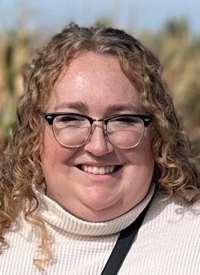
Erin Penzel
Education Program Coordinator II

Kim Pitre
Administrative Associate
Contact Information
Abigail Schuh, MD, MMHPE
Program Director, Pediatric Emergency Medicine Fellowship
Children's Corporate Center, Suite C550
999 N. 92nd St.
P.O. Box 1997
Milwaukee, WI 53201-1997
aschuh@mcw.edu
Erin Penzel
Education Program Coordinator II

















